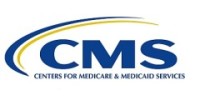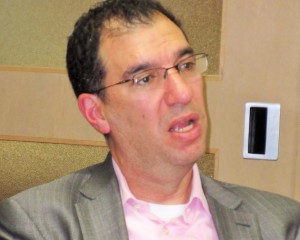A top federal health official said Wednesday that his agency would welcome talks with Georgia leaders about any proposal resembling a Medicaid expansion plan.
“We’re open for business,’’ Andy Slavitt, acting administrator for the Centers for Medicare and Medicaid Services, told reporters during an Atlanta visit. The feds would be a “willing and eager partner’’ in such discussions.
Medicaid expansion, as outlined under the Affordable Care Act, extends the program’s coverage to more uninsured people. States must agree to this move, and Georgia’s political leadership has rejected expansion due to concerns about cost. Recently, though, the Georgia Chamber of Commerce launched a plan to study ideas about broadening Georgians’ access to care.
Separately, Slavitt also said CMS would be willing to look at a Medicaid “waiver’’ plan such as the one proposed by Atlanta’s Grady Health System, which seeks to cover more uninsured Georgians. He also emphasized that a waiver proposal would bring a different set of parameters and funding than an expansion-like plan.
“I don’t consider [a waiver plan] Medicaid expansion,’’ Slavitt said at Southside Medical Center, a federally qualified health center.
More than half of the states have expanded their Medicaid programs. Slavitt cited recent examples of states such as Montana crafting their own versions of expansion.
A similar move here could cover hundreds of thousands of Georgians who are in the “coverage gap.’’ These people make too much income to qualify for Medicaid under the current eligibility rules, but also don’t earn enough to get subsidies that make insurance more affordable under the ACA insurance exchange.
They include Maria Abdulghani, 52, of Henry County, who last Friday asked consumer insurance counselors for help in enrolling in a health plan. But Abdulghani, who works part-time as an usher, was told that she didn’t qualify for the discounted coverage in the exchange because her income wasn’t high enough.
At the same enrollment event in Atlanta, state House Minority Leader Stacey Abrams (D-Atlanta) told Georgia Health News that the Democrats were going to push for Medicaid expansion in the General Assembly session that begins in January.
“It’s a moral issue and an economic issue,’’ Abrams said.
A broad campaign by Georgia Democrats would be their most concerted effort on the issue, but Republicans control state government, and they have taken a stand against Medicaid expansion. Gov. Nathan Deal blocked it from the start and continues to oppose it. And the General Assembly has erected a further barrier, pushing through a law that bans expansion without legislative approval.
A revised Grady waiver plan, meanwhile, is now up for consideration by the state Department of Community Health. Agency Commissioner Clyde Reese said last week that he had yet to review the new Grady plan, which included “aged, blind and disabled’’ people at his request.
Under the original 1115 waiver plan, Grady in Atlanta, Memorial Health in Savannah, some federally qualified health centers such as Southside, and a small group of rural hospitals were seen as the initial sites in the coverage program.
Slavitt also said Wednesday that sign-ups for the 2016 exchange were off to a solid start since open enrollment began Nov. 1. The website healthcare.gov has new features to help consumers make good decisions when shopping for coverage, he added.
The ACA has made a big dent in the number of uninsured, Slavitt noted. But nationally, 10 million people still are eligible for coverage in an exchange but haven’t signed up yet. In Georgia, 304,000 uninsured residents are eligible for exchange coverage.
“It’s going to be challenging’’ to reach this group, he said.
Still, Slavitt emphasized affordability, saying four in five eligible Georgians can buy a health plan for $100 or less a month with subsidies.
Many consumers have complained about high deductibles with exchange plans. (Here’s a recent New York Times article on deductibles.) But Slavitt said that many health plans offer services that don’t count against the deductible, such as primary care visits and prescription drugs.
Health plans “do want people to get access to care,’’ he said.



